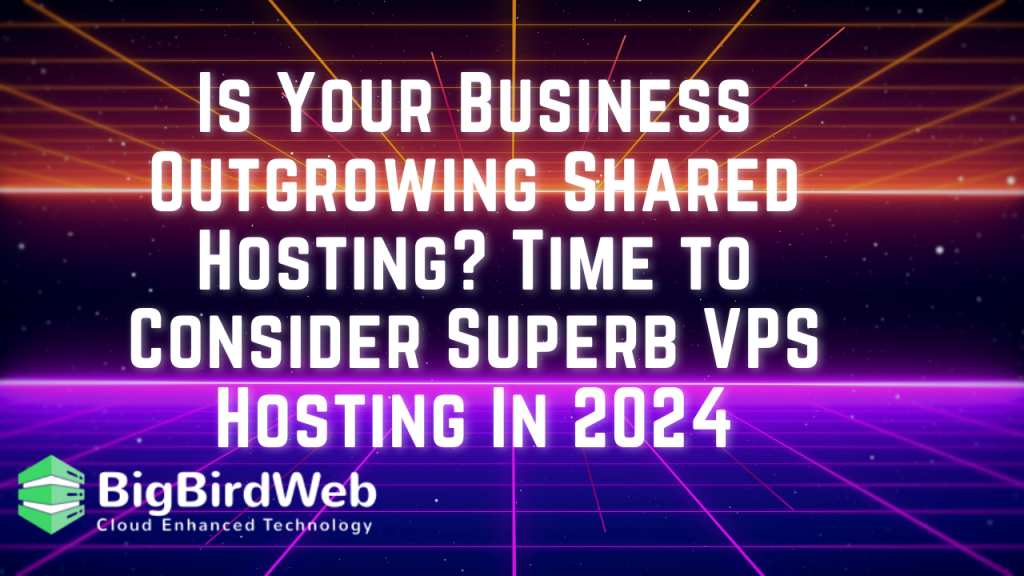Congratulations! Your business is flourishing with shared hosting. Your website is buzzing with activity, attracting new customers and generating leads. But as your online presence expands, you might encounter a hidden roadblock: shared hosting limitations.
Shared hosting, the budget-friendly option many startups choose, excels at getting your website off the ground. However, it doesn’t scale well with business growth. This is where VPS Hosting for Business comes into play.
Table of Contents
Shared Hosting vs VPS Hosting: Understanding the Differences

Imagine an apartment building. Shared hosting is like renting a room in a shared apartment. You share resources like the kitchen, bathroom, and internet with other tenants. This can be a cost-effective solution for small businesses with low website traffic.
VPS hosting, on the other hand, is like having your own studio apartment within the building. You have a dedicated space with allocated resources (electricity, internet bandwidth) – independent of other tenants. This translates to several key advantages for growing businesses:
- Enhanced Performance: Shared hosting distributes resources among multiple websites. If one website experiences a traffic surge, it can strain the server’s capacity, impacting the performance of all websites sharing the server. VPS hosting eliminates this concern. Your website receives a dedicated allocation of CPU, RAM, and storage, ensuring consistent performance even during peak traffic periods.
- Improved Security: In a shared hosting environment, a security breach on one website can potentially compromise others. VPS hosting offers a significant security benefit. Your virtual server is isolated from others, creating a walled garden where a security issue on another website won’t affect yours. Additionally, with VPS hosting, you have greater control over server configurations, allowing you to implement stricter security measures for your website.
- Scalability on Demand: As your business grows, so will your website’s demands. Shared hosting often lacks the flexibility to accommodate this growth. Upgrading to VPS hosting provides a scalable solution. You can easily add more resources (CPU, RAM, storage) to your virtual server as your website traffic or data storage needs increase. This ensures your website can evolve alongside your business without experiencing performance bottlenecks.
- Greater Control and Flexibility: Shared hosting providers typically limit the level of control you have over your website’s environment. With VPS hosting, you gain more autonomy. You can install custom software, configure security settings, and manage server resources according to your specific needs. This flexibility empowers you to tailor your website’s performance to match your business goals.
Signs It’s Time to Migrate from Shared Hosting to VPS Hosting
While shared hosting is a great starting point, there are telltale signs indicating it’s time to consider VPS hosting for your business:
- Traffic Surge: If your website is experiencing consistent growth in traffic, shared hosting might struggle to keep up. Upgrading to VPS hosting ensures your website can handle the increased traffic without compromising speed or user experience.
- Evolving Needs: Perhaps you’re planning to launch an e-commerce store, introduce a membership area, or integrate complex functionalities into your website. Shared hosting often lacks the resources and flexibility to support these endeavors. VPS hosting provides the foundation to handle such advancements.
- Security Concerns: If your website handles sensitive customer data, the enhanced security features of VPS hosting offer peace of mind. The isolation and control VPS offers mitigate the risk of security breaches.
- Performance Issues: Are you experiencing slow loading times, frequent downtime, or website crashes? These could be signs that your shared hosting plan is reaching its limits. VPS hosting guarantees the consistent performance your website needs to function optimally.
Making the Smooth Transition to VPS Hosting
Migrating your website from shared hosting to VPS hosting can seem daunting. However, many VPS providers offer seamless migration assistance. Here’s what you can expect:
- Planning and Preparation: Before initiating the migration, work with your shared VPS provider to assess your website’s specific needs and choose the optimal VPS plan. Ensure you have backups of your website data readily available.
- Migration Process: Most providers offer tools or dedicated support teams to facilitate the migration process. They handle the technical aspects of transferring your website files and databases to your new VPS server.
- Testing and Optimization: Once the migration is complete, thoroughly test your website’s functionality and performance on the VPS server. Fine-tune any necessary configurations to ensure everything runs smoothly.
FAQs about Migrating from Shared Hosting to VPS Hosting
1. Is migrating to VPS hosting a complex process?
The migration process itself can be relatively straightforward, especially if you choose a VPS provider that offers migration assistance. These providers typically have tools or dedicated support teams to help you transfer your website files and databases. However, planning and preparation are crucial. It’s essential to assess your website’s needs and choose the right VPS plan beforehand. You can also opt for free web hosting.
2. Will there be downtime during the migration?
Most reputable VPS providers strive to minimize downtime during the migration process. They often employ techniques that ensure your website remains accessible while the transfer occurs. However, it’s advisable to schedule the migration for a time with minimal website traffic, just in case.
3. What happens if something goes wrong during the migration?
A reputable VPS provider will have experienced technical support staff readily available to address any issues that might arise during the migration. Additionally, having a recent backup of your website data provides an extra layer of security, allowing you to restore your website quickly if needed.
4. Is VPS hosting significantly more expensive than shared hosting?
VPS hosting does come at a slightly higher cost compared to shared hosting. However, the enhanced performance, security, scalability, and control it offers often justify the investment for growing businesses. Consider the potential cost of lost revenue due to website downtime or performance issues on shared hosting when evaluating the value proposition of VPS hosting.
5. Can I go back to shared hosting if VPS hosting seems too complex?
Technically, yes, it’s possible to migrate back to shared hosting from VPS hosting. However, it’s generally not recommended. Shared hosting might not be able to accommodate the growth your website has already experienced, potentially leading to performance issues again. If you’re concerned about managing VPS hosting, consider opting for a managed VPS plan. These plans typically include server management tasks like software updates and security configurations, handled by the provider.
Bonus Content: 3 Essential Considerations When Choosing a VPS Hosting Provider
- Resource Allocation: Ensure the provider offers VPS plans with sufficient CPU, RAM, and storage to meet your current and future website requirements. Don’t underestimate the potential for future growth – choose a plan with some room for scalability.
- Security Features: Prioritize providers that offer robust security measures like firewalls, intrusion detection systems, and DDoS protection. Look for providers that demonstrate a commitment to data security and implement best practices.
- Customer Support: Reliable and responsive customer support is essential. Choose a provider with 24/7 support channels, ideally with multiple options like phone, live chat, and email. During the migration process and beyond, having access to prompt and knowledgeable support can be invaluable.
By carefully evaluating your website’s needs and considering these factors when choosing a VPS hosting provider, you can ensure a smooth transition and unlock the full potential of VPS hosting to propel your business growth.
